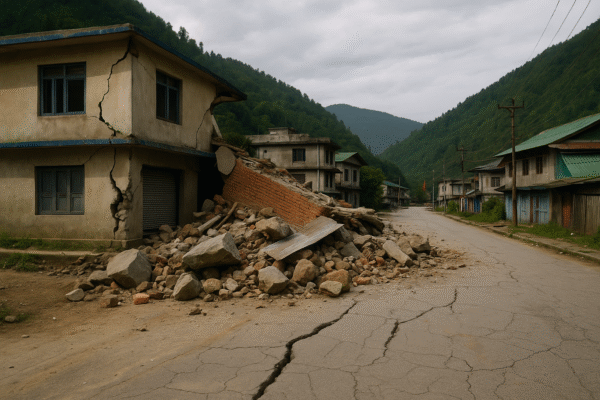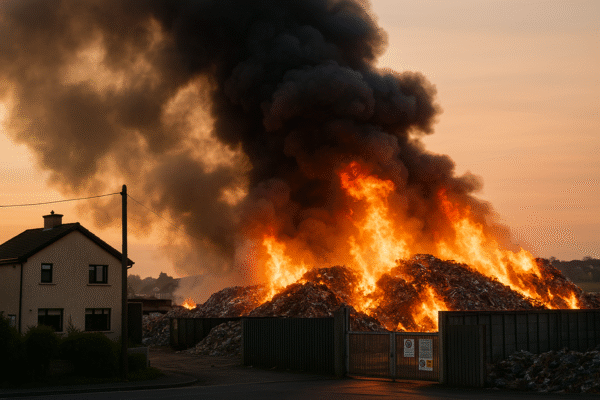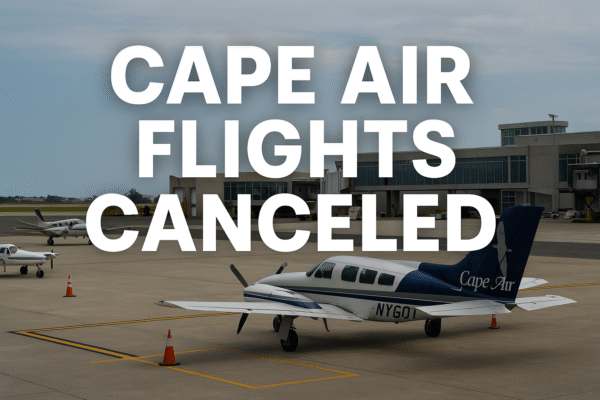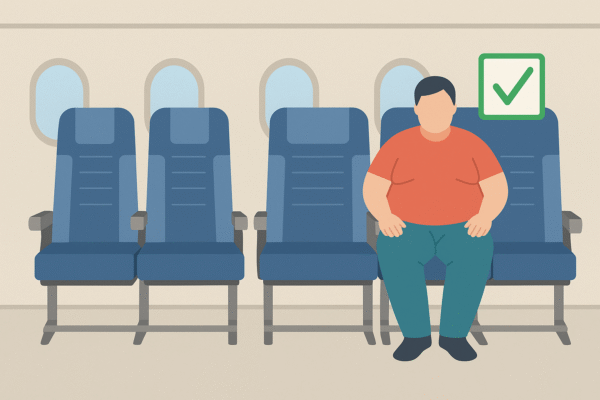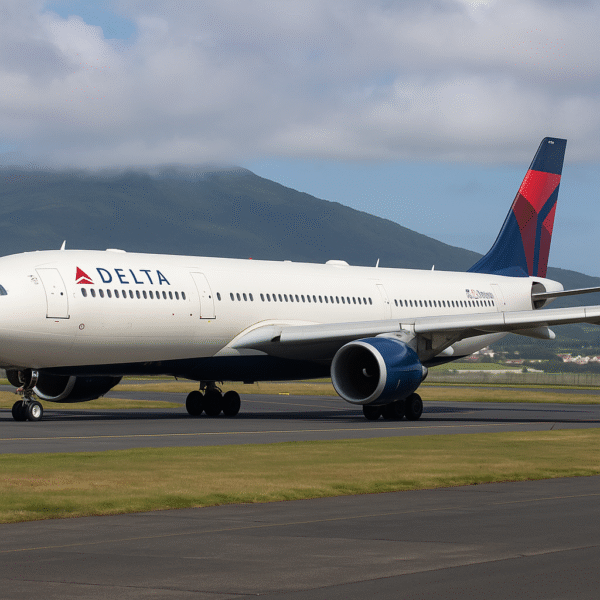In a dramatic mid-air turn of events, Delta Air Lines Flight 127 from Madrid-Barajas Adolfo Suárez Airport (MAD) to New York’s John F. Kennedy International Airport (JFK) was forced to make an emergency landing at Lajes Airport (TER) on Terceira Island in the Azores after suffering an engine failure over the Atlantic Ocean. The emergency diversion resulted in an unexpected 31-hour delay for the 282 passengers and 13 crew members onboard the Airbus A330 aircraft.
The incident occurred on Sunday, July 6, when the aircraft experienced technical issues with one of its engines while flying westward on its transatlantic route. Following standard emergency protocols and prioritizing passenger safety, the flight crew initiated a diversion to the nearest suitable airport—Lajes Field, a Portuguese Air Base that also serves as a civilian airport on the Azorean island of Terceira.
Emergency Diversion to the Azores
Lajes Airport, located nearly halfway between Europe and North America, has long served as an emergency diversion point for transatlantic flights due to its strategic mid-ocean location. While the crew managed a safe landing, the aircraft remained grounded for more than 31 hours as Delta coordinated technical evaluations, engine inspections, and logistical support from mainland Europe.
For many passengers, the emergency landing offered an unexpected and challenging layover on a remote volcanic island they had never intended to visit. The small airport was not equipped to handle a full wide-body aircraft’s worth of stranded travelers, complicating accommodation, transport, and dining logistics for Delta’s ground response team.
Passenger Disruption and Airline Response
While there were no injuries reported, many passengers voiced frustration on social media over the limited amenities and lack of clear communication during the extended delay. Lajes Airport, typically serving fewer than a dozen commercial flights per day, faced significant pressure in accommodating the influx of travelers.
Delta Airlines responded by providing meals, water, and hotel accommodations when possible. Passengers were kept updated on repair efforts, and efforts were made to provide compensation and travel vouchers for the inconvenience. Delta also issued an official apology and reaffirmed its commitment to passenger safety.
“The safety of our customers and crew is always our highest priority,” a Delta spokesperson said in a statement. “We commend our pilots and onboard crew for their swift and professional actions in handling the situation, and we deeply appreciate our customers’ patience and understanding.”
Technical Challenges and the Final Leg to New York
After the necessary engine inspections and repairs were completed—made more difficult due to the remote location of the Azores—the aircraft finally received clearance to resume its flight. The passengers, who had been grounded for over a day, reboarded and completed the transatlantic journey to New York late on Tuesday evening.
According to aviation data tracking sites, the final leg of Flight 127 landed at JFK more than 31 hours later than originally scheduled, resulting in missed connections and onward travel disruptions for dozens of travelers.
While the aircraft in question is now undergoing further diagnostics, the incident highlights the complex reality of modern air travel and the technical demands of long-haul transatlantic flights.
Lessons in Aviation Preparedness and Passenger Support
Aviation experts note that diversions such as this, while rare, are part of standard risk management in transoceanic flight operations. The mid-Atlantic emergency protocols in place allowed the pilots to land the aircraft safely at Lajes, demonstrating the critical role of airfields like those in the Azores.
Delta’s rapid response—both on the ground and in the air—has been acknowledged by industry professionals as a textbook example of prioritizing safety while striving to minimize disruption under difficult circumstances.
Broader Impact and Industry Implications
The flight’s delay underscores how unforeseen technical failures, even with modern aircraft, continue to pose logistical challenges. Moreover, it has prompted renewed conversation about how airlines manage communication, passenger welfare, and contingency operations when forced to use lesser-equipped airports for emergency landings.
As international travel continues to rebound post-pandemic, airline carriers like Delta are reminded of the importance of strategic route planning, crew training, and emergency preparedness, especially across transatlantic routes where options for diversion are limited.
For travelers on Delta Flight 127, the long delay became an unintended stopover in a remote yet stunning part of Portugal—albeit under less-than-ideal circumstances. Despite the frustration, all passengers arrived safely in New York, a reminder that in aviation, safety always takes precedence over speed.
For more travel news like this, keep reading Global Travel Wire





